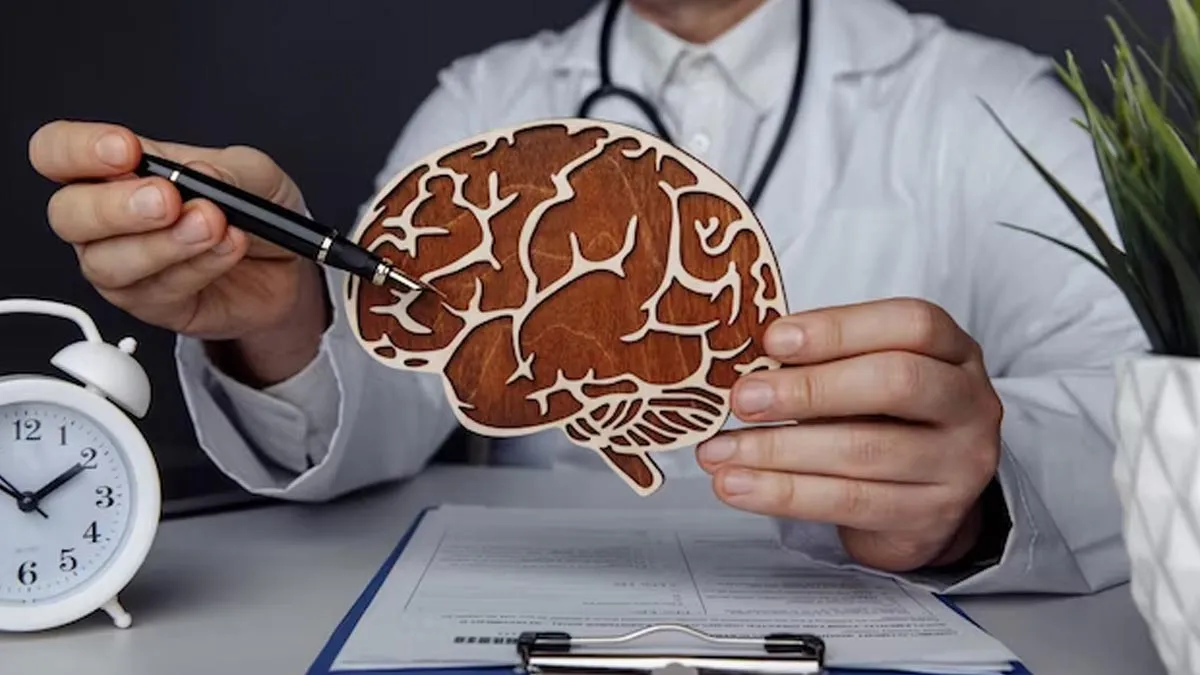
In a world obsessed with wrinkle creams and miracle serums, we often overlook one of the most vital organs when it comes to aging gracefully: our brain. Just like the rest of our body, our brain ages, and with it, comes the potential for cognitive decline, memory issues, and a general slowing down. But what if there was a way to actively combat this process, to keep our minds sharp, agile, and vibrant for years to come? This is where the anti-ageing brain diet comes into play.
Table of Content:-
In an exclusive interaction with the editorial team of Onlymyhealth, our expert, Pooja Singh, Dietician at ShardaCare, Health City - Noida, explained that the anti-ageing brain diet is about making informed, delicious choices that nourish your brain cells, protect them from damage, and optimise their function. So, what exactly does this brain-boosting diet entail? Here is everything he shared with us.
What To Eat for Anti-Ageing Brain
The cornerstone of an anti-ageing brain diet lies in nutrient-dense foods that are packed with antioxidants, healthy fats, vitamins, and minerals. These are the power players that will keep your grey matter gleaming.
1. Omega-3 Fatty Acids
These healthy fats are crucial for brain health, forming the very structure of brain cell membranes. They are also powerful anti-inflammatory agents.
Where to find them: Fatty fish like salmon, mackerel, sardines, and trout are excellent sources. If you're not a fish fan, flaxseeds, chia seeds, walnuts, and fortified eggs offer plant-based options. Aim for at least two servings of fatty fish per week.

Also Read: Is Love Blinding You? Explore Halo Effect and Why We Overlook Our Partner’s Flaws in Relationships
2. Antioxidant-Rich Fruits and Vegetables
Our brains are particularly susceptible to oxidative stress, a process that damages cells and contributes to aging. Antioxidants act as a protective shield, neutralising harmful free radicals.
Where to find them: Berries (blueberries, strawberries, raspberries), dark leafy greens (spinach, kale, collard greens), broccoli, bell peppers, tomatoes, and bright-colored fruits and vegetables are bursting with these protective compounds. Think "eat the rainbow" for maximum benefit.
3. Whole Grains
Unlike refined grains that cause blood sugar spikes and crashes, whole grains provide a steady release of glucose, the brain's primary fuel source. This consistent energy supply helps maintain focus and cognitive performance.
Where to find them: Oats, quinoa, brown rice, whole wheat bread, and whole grain pasta are excellent choices.
4. Nuts and Seeds
These tiny titans are packed with healthy fats, vitamin E, and antioxidants. Vitamin E, in particular, has been linked to a reduced risk of cognitive decline.
Where to find them: Almonds, walnuts, pecans, sunflower seeds, pumpkin seeds, and flaxseeds make for excellent snacks or additions to meals.
5. Legumes
Beans and lentils are rich in fiber, which aids in stable blood sugar, and folate, a B vitamin essential for neurotransmitter function.
Where to find them: Black beans, kidney beans, chickpeas, and lentils can be incorporated into soups, salads, and stews.
6. Olive Oil
Extra virgin olive oil, a staple of the Mediterranean diet, is rich in monounsaturated fats and polyphenols, which have anti-inflammatory and antioxidant properties beneficial for the brain.
How to use it: Use it for cooking at lower temperatures, in salad dressings, or as a finishing oil.

Also Read: Still Not Losing Fat Despite a Calorie Deficit? Fitness Coach Reveals 5 Surprising Reasons Why
What To Avoid (or Limit)
Just as certain foods can boost brain health, others can actively work against it, accelerating the aging process and increasing the risk of cognitive issues. Limiting or avoiding these is crucial for an anti-ageing brain diet.
1. Refined Sugars and Processed Foods
Excessive sugar intake can lead to inflammation, insulin resistance, and impaired brain function. Processed foods, often laden with added sugars, unhealthy fats, and artificial ingredients, offer little to no nutritional value for your brain.
Why avoid: They contribute to brain fog, fatigue, and can even shrink the hippocampus, the brain's memory center.
Examples to limit: Sugary drinks, candies, pastries, fast food, and highly processed snacks.
2. Trans Fats and Hydrogenated Oils
These unhealthy fats, often found in processed and fried foods, contribute to inflammation and can damage blood vessels, impacting blood flow to the brain.
Why avoid: Impaired blood flow means less oxygen and nutrients reaching your brain cells.
Examples to limit: Margarine, commercially baked goods, fried foods, and many packaged snacks. Always check food labels for "partially hydrogenated oil."
3. Excessive Alcohol
While moderate alcohol consumption might have some cardiovascular benefits, excessive drinking can have detrimental effects on brain health, leading to memory loss and cognitive impairment.
Why limit: Alcohol is a neurotoxin and can cause brain damage over time.
Recommendation: If you choose to drink, do so in moderation (up to one drink per day for women, and up to two for men).
4. High Sodium Intake
While sodium is essential, excessive intake can contribute to high blood pressure, which in turn can damage blood vessels in the brain and increase the risk of stroke and cognitive decline.
Why limit: Maintain healthy blood pressure for optimal brain blood flow.
Examples to limit: Highly processed and packaged foods, canned soups, and excessive use of table salt.
Lifestyle Habits to Adopt for Brain Health
While diet is paramount, remember that it's part of a holistic approach to brain health. Complement your anti-ageing brain diet with these lifestyle habits:
Regular Physical Activity: Exercise boosts blood flow to the brain, promotes the growth of new brain cells, and reduces inflammation.
Quality Sleep: During sleep, your brain clears out toxins and consolidates memories. Aim for seven to nine hours of quality sleep per night.
Stress Management: Chronic stress can damage brain cells. Practice mindfulness, meditation, yoga, or spend time in nature.
Mental Stimulation: Keep your brain active by learning new skills, reading, solving puzzles, or engaging in stimulating conversations.
Social Connection: Strong social ties have been linked to a reduced risk of cognitive decline.
Bottomline
The anti-ageing brain diet isn't a temporary fix; it's a sustainable way of eating that can profoundly impact your cognitive health as you age. By prioritising nutrient-rich whole foods and consciously limiting brain-damaging culprits, you're not just investing in your future self, but actively building a more resilient, vibrant, and sharper mind. So, the next time you sit down to eat, ask yourself: Is this meal feeding my brain, or fueling its decline? The power to age smarter is truly on your plate.
Also watch this video
How we keep this article up to date:
We work with experts and keep a close eye on the latest in health and wellness. Whenever there is a new research or helpful information, we update our articles with accurate and useful advice.
Current Version